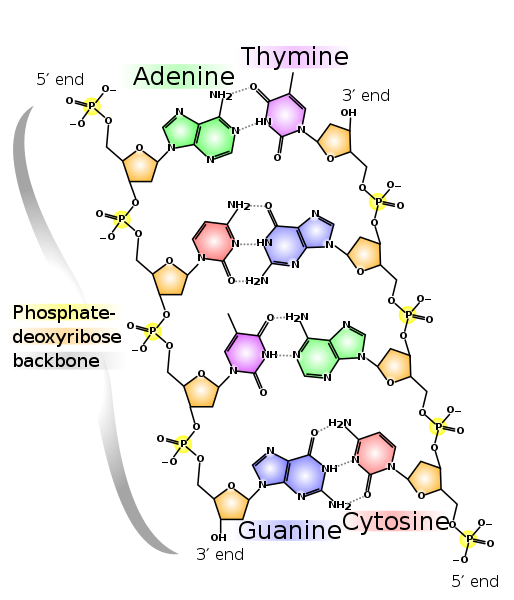
Some things are capable of converting one base pair into another one. This is called a mutation. Mutations are one of the reasons of evolution, you can get a improvement by mutations. One of these mutations is delta-32. This mutation has made humans immune for HIV. But mutations are only rare beneficial, in most cases there happens nothing or it's a bad mutation. I will give an example. Let’s say that you are someone who knows nothing about engines. You buy a super sport car, let's say a Ferrari, what is the change that by altering something on this engine you improve it? Very small. Well mutations happens random, this is the same as you who have no knowledge about engines and do something to one. You will change a random thing in this engine. So, mutations are bad in most cases. So, its important to diminish the number of mutations.
So, what's the reason mutations occur? One way is because mutagenic chemicals or radiation get inside your body. Examples are: UV radiation, ionising radiation (radioactive radiation), ethidium bromide, vinca alkaloids (natural in some plants), benzene,… Because many mutations cause cancer these compounds are also carcinogens. Another way in which mutations can occur is by damage to the DNA from reactive oxygen species. Many of the mutations occur by errors in DNA replication, repair and recombination of DNA sequences.
Before we come to how you can fight against mutations, we will talk about epimutations.
Epimutations are hereditary changes in the working of the genome without changes in the DNA code. The epimutations occur by a methylation or demethylation of various genes. These (de)methylations can switch genes on or off. So the ‘book’ (= the genetic code) doesn’t change but the chapters that you read changes. When a gene is switched off your body doesn’t read that chapter and when a gene is switched on the body does read the gene.
How can you fight against mutations with means that are avoidable on this moment? The first thing you can do is prevent that you come in contact which mutagenic (carcinogenic) compounds. For example: don’t smoke, don’t eat food that is prepared on the barbeque,…
The second thing you can do is decrease the number of reactive oxygen species. But first we have to now what these are. This group exists of 3 things: free radicals, oxygen ions and hydrogen peroxide. The free radicals are a group of chemicals. What is a radical? When you have learnt chemistry you will know that many of the elements aren’t stable as a mono-atomic substance. This means that they form bonds with other atoms. Let's take oxygen as a example. Oxygen has 6 electrons on it’s outer skin. But to be stable it needs 8 electrons. That’s why 2 oxygen’s chare 4 electrons.
O: + :O --> O :: O
If these bounds breaks and the oxygen, like those two on the left of the image are formed, than we speak about radicals. These are very reactive compounds and react in your body with everything it encounters (e.g. DNA, proteins, fats,…). Many people think that if they take a pill of vitamin C, E or so the problem is solved but it isn’t. Taking an antioxidant can maybe even make the problem bigger. You have to take redox cycling into consideration. This is a very difficult problem. In the next post I will discuss it.
Keep healthy

No comments:
Post a Comment